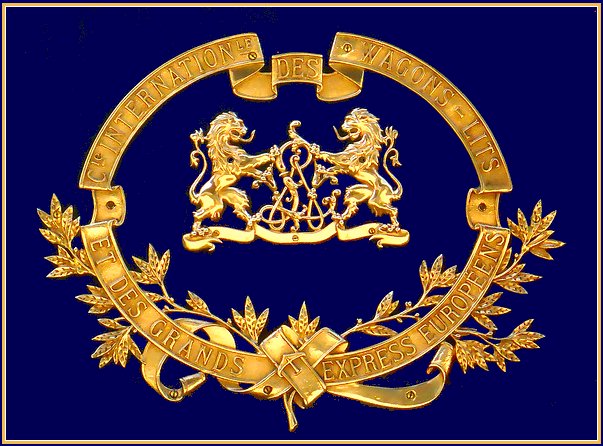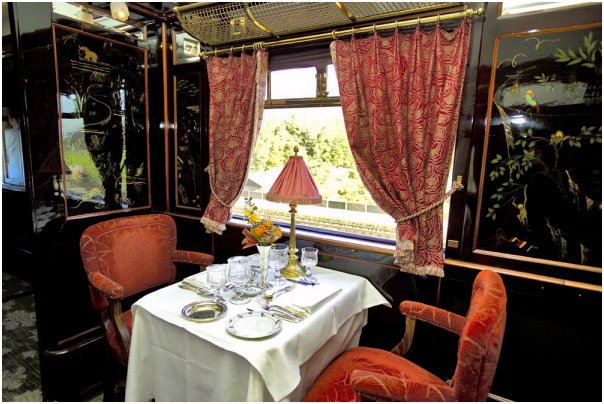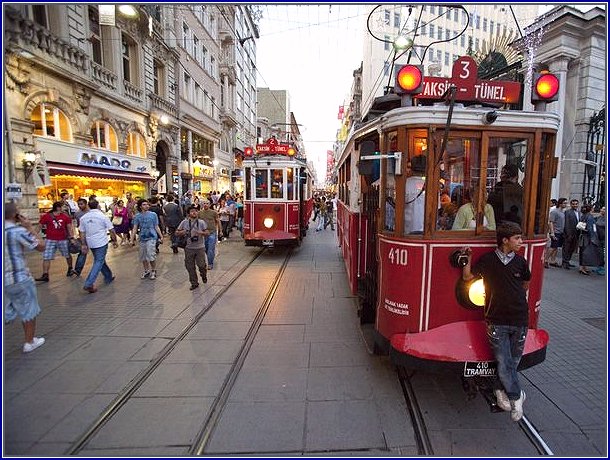

To most people the Orient Express is more an idea than a tangible entity. We are most familiar with its life in fiction and cinema: Hercule Poirot solved his most famous case on it, Alfred Hitchock’s lady vanished from it and James Bond rode it from Istanbul to London. But in fact this is not entirely fiction. Turn the clock back to the early years of the 1900s, and two forces were at work in Europe.
Beginning in the 1780s, the Ottoman Empire began to weaken, as European powers gained strength and began to vie with each other for access to resources and markets in the Middle East. Most of the northern coast of the Black Sea had slipped away by 1812. The Ottoman Empire lost Greece, Egypt, and Serbia to European-inspired independence movements over the next 60 years. By 1900, Turkey was known as the "Sick Man of Europe".
 This map of the Empire, or one very similar, would be on the wall of every government military and diplomatic office in western Europe, each of the major powers, Britain, Germany, Russia and France shading the areas it hoped to gain. In short, the Ottoman Empire was dying, and the vultures were circling. Britain and France were eyeing the middle east, Germany was already supplying trains to Turkey with plans to extend into Syria, and Russia had its eyes on the Crimea, Bulgaria and Roumania. That was the first piece of the picture. But the vulture nations also faced a major tactical problem: communication. Telegraph was not always available and in any case was not secure, documents sent through the Diplomatic Bag travelled at railway speed, while pigeons were unreliable and could easily be deflected temporarily or even permanently by a farmer’s wife too generous with the grain and knife at the ready. Deals were there to be made, sure enough. Sheikhs from the deserts of Iraq and Syria, and down through the Arabian peninsula found themselves virtually independent as Turkish influence waned, and were definitely "open to offers", while Russian agents provocateurs were infiltrating their own coveted territories quietly disrupting Turkish government operations, fomenting revolution and no doubt supplying the necessary hardware. The deals were there, but they had to be quickly made, and preferably sealed with hard cash. The combination of fast deals requiring quick decisions, and the lack of rapid and reliable communication with the home government gave rise to the Minister Plenipotentiary, a minister "full of powers" from the Latin plenus (full), and potens (power). Ambassadors are still known by this title today. The Ministers Plenipotentiary were thoroughly briefed by the Foreign Offices of their home governments, given a pile of cash, then sent out among the territories of the Ottoman Empire to grab whatever they could. And how would they travel from London, Paris or Berlin to Istanbul? The Orient Express was the obvious solution – and on board they would no doubt rub shoulders with Russian agents following their own agendas while keeping an eye on their competition. So the British agent in the Dining Car, immaculately turned out in full evening dress for dinner, is shown to a table for two already occupied by a sultry Russian lady in tight-fitting evening gown. As she gets up to leave, she places her hand lightly on his shoulder and whispers “Compart-i-ment Seven. Ai weel bee aahlawn...”
 From the late 1800s through the early years of the following century, the map of the old Ottoman Empire went through a change of colours as claims were staked and sovereignty – of sorts – established. And by 1912, the Empire had lost nearly all of its European territories, with the Middle East following after WW1. After WW2 my father joined the Iraq Petroleum Company, and he and my mother lived first on a pipeline station in the desert near Kirkuk then later in Basrah. Barely a teenager, I was at school in England, going out to visit my parents for the long summer holidays. Flying was far too expensive in those days, so I would take the boat-train from London to Paris Gare du Nord, transfer by taxi to the Gare de Lyon, then board the Orient Express bound for Istanbul, then by boat to Beirut, trans-desert bus to Baghdad, finally train north to Kirkuk or south to Basrah. Quite a journey for one so young travelling alone!
 The Orient Express was actually several blue carriages, a restaurant car and two or three sleeping cars depending on traffic. This little group would be huddled together, first in the middle of a long French train consisting of uniform grey carriages with those big pull-down windows you could pass luggage through. At Ventimiglia the train would stop for at least 2-3 hours while Customs Officials and money changers toured the train, which moved and jolted from time to time as our carriages were shunted around, eventually forming part of an Italian train with Italian carriages. Same in Ljubliana, where our Wagons Lits carriages became part of a Jugoslav train. One could always walk freely the whole length of the train, I to see the different carriage interiors and passengers, while some seats-only passengers from the local carriages would come to eat in "our" restaurant car. The Jugoslav carriages were particularly fascinating to me; they were short, two-axle (no bogies), with open balconies at each end and wooden seats throughout. The seats were arranged in fours, and each foursome would be occupied by a family group, men and women dressed in black, women with black shawls over their heads, the men wearing black caps. They always seemed to be huddled together sharing rough bread and cheese wrapped in white cloth, and drinking red wine out of plain bottles. The dining car offered tables for two or four. I was always seated at a table for two, then to be joined by a stranger. Sometimes we managed snatches of conversation in a mix of languages (I with English and fairly competent French), sometimes silence. Sometimes a man, sometimes a woman. But always, in my young eyes, my dining companion would be a spy, an "agent provacateur" or a Minister-full-of-Powers-and-cash returning to his Embassy in Sofia, Istanbul, Damascus or Baghdad.
 Each sleeping car had its own Conductor, who kept all the passports in a black leather doctor’s bag which he would lock away in his own small compartment. This would spare the passengers from being troubled with customs and passport controls at each frontier. But apparently it didn’t always work. I was woken in the middle of the night at the Bulgarian frontier by a loud knocking on my compartment door. I was sleeping in the lower bunk with my head right by the door. I reached out, unlocked and opened it slightly – it was on the safety chain. I was confronted by an unshaven officer, sweating profusely in a thick serge khaki uniform with a bevvy of assorted arms, handcuffs and unidentified hardware on his belt, almost overpowering me with heavily garlic-laden breath. "Passyporty, Peppers, Weezum (=Visa!), where you go...?" Fortunately the Conductor came to my rescue. At Istanbul terminus a worried little man in thick dark blue uniform with "Wagons-Lits" on his peaked cap would run up and down the blue carriages shouting "Vaggonleecoook, Vaggonleecoook." And here I must make a confession. A thirteen-year-old boy travelling alone on the legendary Orient Express... well not exactly. There was always the Thomas Cook man, and my uncle was at that time Managing Director of the great Thomas Cook’s in London. My name would be on their lists wherever I went from Victoria to the Mediterranean. This worthy gentleman would fix me up with a decent hotel, hand me a city guidebook, and after a day or two’s liberty – depending on maritime schedules, he would see me to the boat that would take me to Beirut for my trans-desert journey to Baghdad. Modern-day Turkey has worked wonders with Istanbul. New, clean high-rise suburbs are surrounded by parks and gardens, there’s excellent public transport including new tram and subway lines, and the main thoroughfare, Istiklal (Independence) Street, is pedestrianized save for a vintage tramline. And guess what? The old trams which I actually rode on in the late 40s and early 50s, having been withdrawn during the anti-tram years, have now been fully refurbished and are running again! And of course the Orient Express is back, now running as a “luxury travel experience”. So we come full circle.

|
